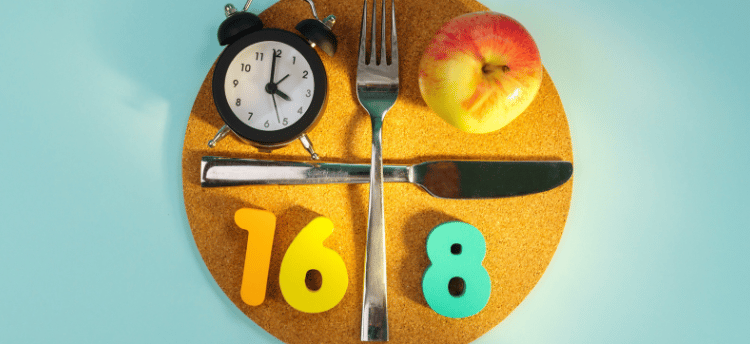Intermittent Fasting for Diabetes Remission – Does It Really Work?
Intermittent fasting BLEW MY MIND for diabetes remission—seriously! I dug into the science, tried it myself (safely!), and found out how it actually works (and when it’s risky). Spoiler: YES, it can reverse type 2 diabetes… but ONLY if you do this ONE thing first.
5/29/20256 min read


Intermittent Fasting for Diabetes Remission – Does It Really Work?
Let's talk about something that blew my mind a few years back: Intermittent Fasting and whether it can actually put type 2 diabetes into remission. That word "remission" – basically meaning your blood sugar gets so good, for so long, you might not even need diabetes meds anymore? Yeah, that sounded like science fiction to me too. But guess what? It’s not. And I went down a serious rabbit hole (and talked to my doc, crucial step!) to figure out if this intermittent fasting thing really works.
Here’s the real, story on what I learned:
My "Whoa, Really?" Moment
So, picture me: worried about my blood sugar creeping up (prediabetes territory, ugh), feeling kinda sluggish, and honestly, a bit overwhelmed by all the diet advice out there. Then I kept hearing about intermittent fasting. Not just for weight loss (though hey, that’s a bonus!), but people claiming it was reversing their type 2 diabetes. My first thought? "Yeah, right. Probably just hype." But curiosity got the better of me, and I started digging – real research, not just Instagram posts.
What I found honestly shocked me. Turns out, there are legit studies showing that a significant chunk of people with type 2 diabetes who do structured intermittent fasting can actually achieve remission. We’re talking numbers like over half in some trials! And get this – it wasn't just folks just diagnosed. People who'd had diabetes for years saw amazing results. That flipped a switch for me. This wasn't just wishful thinking; there was actual evidence.
How I Think This intermittent fasting Magic Trick Might Work (Simplified!)
Okay, forget complex biology for a sec. Think of your body like a car and sugar (glucose) as the fuel.
Giving the Gas Pedal a Break (Insulin): When we eat constantly (especially sugary or carb-heavy stuff), our body has to constantly pump out insulin (the hormone that helps sugar get into cells for energy). It's like flooring the gas pedal non-stop. Eventually, the engine (our cells) gets tired and stops responding well – that's insulin resistance, the core of type 2 diabetes. intermittent fasting? It gives that insulin pedal a big break. By not eating for longer stretches (say, 14-16 hours), your insulin levels get a chance to drop way down. Over time, your cells seem to go, "Oh hey, insulin! Welcome back, we remember you!" and start responding better again. Less insulin resistance = better blood sugar control. Makes sense, right?
Tapping into the Hidden Fuel Tank (Fat): When you're not eating for a while, your body runs out of its quick-burn sugar fuel (glycogen). So, it has to dig into its backup tank: your fat stores. This is key! Especially that sneaky fat packed around your organs like your liver and pancreas. That stuff is bad news for blood sugar. Burning that off is like decluttering the engine bay – suddenly things run smoother. Your liver isn't dumping extra sugar into your blood as much, and your pancreas (which makes insulin) can work better without being smothered in fat.
The Body's Tune-Up (Autophagy): This one's a bit weirder but cool. Fasting for longer periods seems to trigger this internal clean-up crew called "autophagy" (aw-TOFF-uh-gee). It's like your cells take out the trash and recycle old, busted parts. Think of it as a mini-repair mode that might help fix some of the damage caused by high blood sugar over time.
Bonus Perks!: Beyond blood sugar, intermittent fasting often helps with weight loss (obviously), lowers blood pressure, and improves cholesterol numbers. It’s like hitting multiple birds with one stone (a nicer stone, promise!).
What the Science Nerds Actually Found (But in Friend-Language)
So, all that theory sounds nice, but does it actually work in real life? According to the studies I pored over (while eating my feelings... ironic, I know):
Remission IS Possible: Yep, those studies showing over 50% remission rates in some groups? They're real. People got their HbA1c (the big blood sugar report card) below the diabetes line and kept it there for a year without meds. Mind. Blown.
Sometimes Better Than Pills? Get this: One big study compared a specific intermittent fasting plan (like the 5:2 – eat normal 5 days, super low-cal 2 days) to common diabetes meds. The intermittent fasting group did better at lowering their HbA1c! Whoa.
Different Flavors Work: There's no one "right" way. Popular ones I looked at:
Time-Restricted Eating (TRE): Squeeze all your eating into an 8-hour window (like noon-8pm). Fast the other 16 hours. Seems simple, but takes getting used to!
The 5:2 Diet: Eat normally 5 days a week. On the other 2 days (not back-to-back!), you eat only about 500-600 calories. That’s like one decent meal. Tough, but effective.
Twice-Per-Week Fasting (TWF): Similar to 5:2, maybe stricter on fasting days. Studies showed this one often ranked really high for effectiveness.
Sticking With It Matters (Big Time!): Here’s the kicker though – the amazing benefits? They mostly happen while you're actively doing intermittent fasting. If you stop, the blood sugar creep often comes back. It’s not a "cure and done" thing; it’s more like finding a new, sustainable way of eating that keeps your diabetes in check. This isn't a quick fix diet; it's a potential long-term shift.
My Reality Check (& Why You MUST Talk to Your Doc!)
Okay, I got super excited reading this stuff. But then reality hit. Trying intermittent fasting, especially with diabetes (or prediabetes), isn't like trying a new smoothie recipe. It's serious business. Here's what I learned the hard way (well, not too hard, because I talked to my doctor FIRST!):
MEDICATION DANGER ZONE: This is HUGE. If you take insulin or certain diabetes pills (like sulfonylureas - glipizide, glyburide, etc.), fasting can make your blood sugar plummet dangerously low (hypoglycemia). Like, scary-pass-out low. YOU ABSOLUTELY CANNOT JUST START FASTING ON YOUR OWN intermittent fasting YOU'RE ON THESE MEDS. Your doctor must be involved to adjust or potentially stop them before and during fasting. This isn't optional; it's critical safety stuff.
It's NOT For Everyone: intermittent fasting can be risky if you have type 1 diabetes, are pregnant/breastfeeding, have a history of eating disorders, or certain other health conditions. Your doc knows your history and can tell you if it's even an option.
Listen to Your Body: Starting out, I felt hangry, got headaches, felt tired. That's kinda normal as your body adjusts. But you have to monitor your blood sugar closely (way more than usual at first) to catch any scary lows or weird highs (sometimes stress hormones can spike it). Hydration is KEY – drink tons of water, herbal tea, black coffee.
Don't Gobble Junk Food in Your Eating Window! This isn't a license to eat a whole pizza because you fasted. Duh, right? But seriously, what you eat when you eat matters just as much. Focus on real food – veggies, lean protein, healthy fats, some whole grains. Garbage in = garbage results, fasting or not.
Finding Your Groove: I tried TRE first. Skipping breakfast felt weird but doable. The 5:2? Those low-cal days were ROUGH for me initially. I learned it’s about finding what fits your life and your body. Maybe start with a 12-hour fast (7pm-7am) and work your way up. Consistency beats perfection. Some days you'll nail it, others... not so much. That's okay.
It's a Marathon, Not a Sprint: Seeing results takes time. Don't expect overnight miracles. Focus on how you feel – more energy? Stable mood? Better sleep? – as well as the numbers.
So, Does It Really Work? My Takeaway
Based on the science and the real-world experiences of many people (and my own cautious journey!), yes, intermittent fasting absolutely can be a powerful tool for putting type 2 diabetes into remission.
BUT (and this is a massive BUT):
It's not magic. It requires commitment and finding a sustainable pattern.
It's not a solo mission. Working with your doctor is NON-NEGOTIABLE, especially for medication adjustments and safety.
It's not the only way. Healthy eating, movement, sleep, and stress management are still the foundation. intermittent fasting is just one strategy that seems to really kickstart metabolic healing for some people.
It's not guaranteed. While the stats are promising, it doesn't work for everyone. Genetics, how long you've had diabetes, and other factors play a role.
My Final Thought?
If you're struggling with type 2 diabetes or prediabetes and feeling stuck, learning about intermittent fasting and its potential for remission is genuinely exciting. It offers real hope. The science backing it up is strong and growing. It changed my perspective on what's possible.
